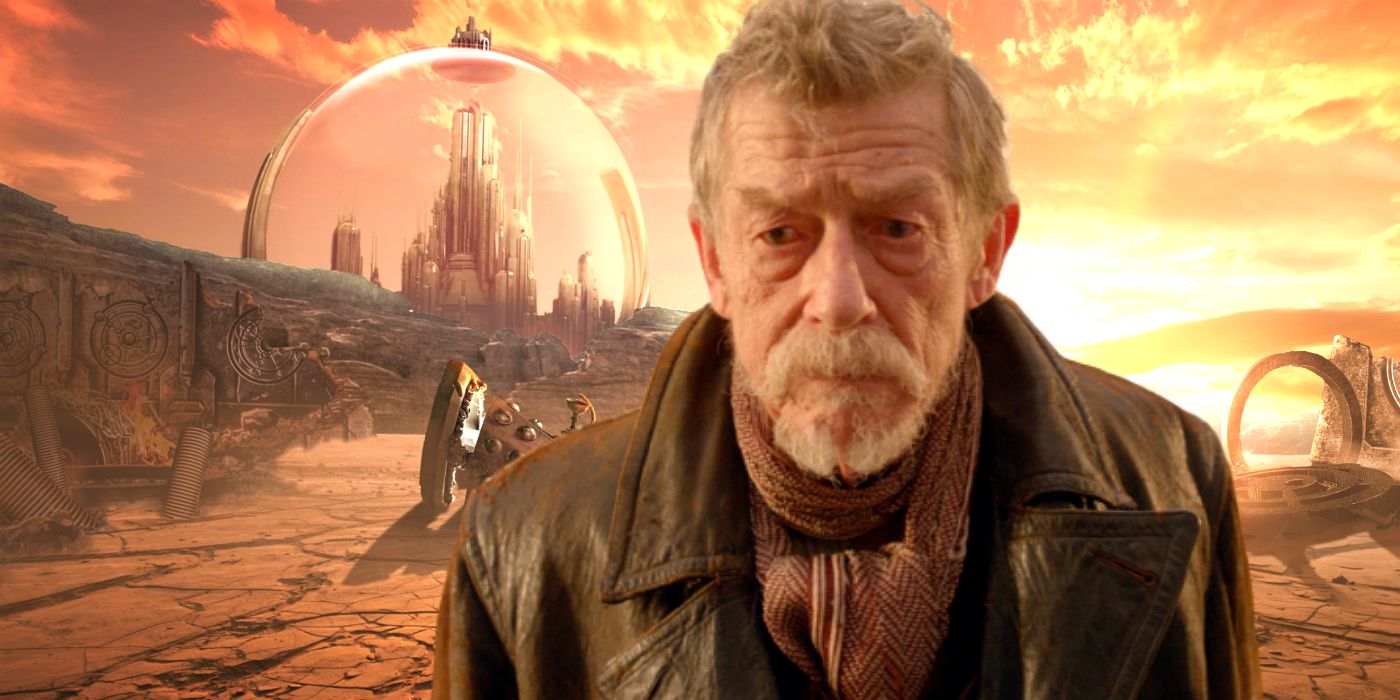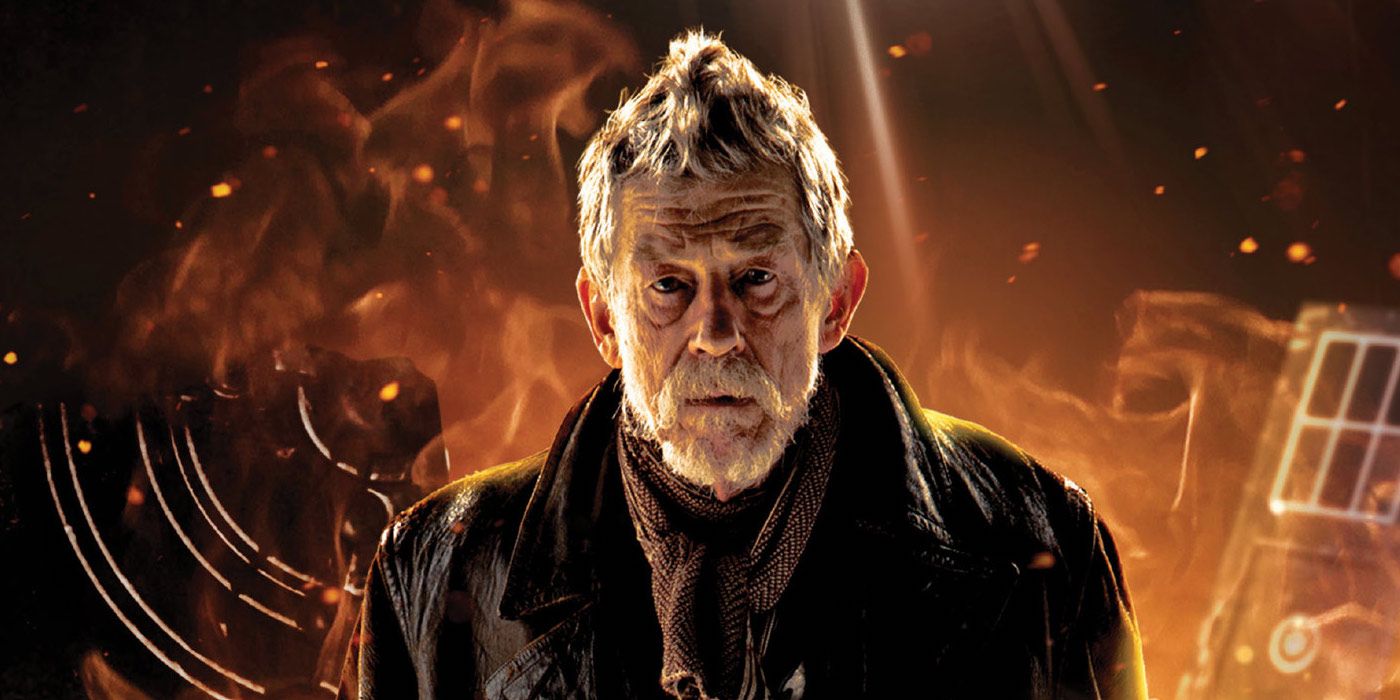Doctor Who: How The Time War Broke The Doctor | Screen Rant

Doctor Who tie-ins reveal just how the Time War broke the War Doctor. When Russell T. Davies relaunched Doctor Who in 2005, he decided to take an innovative approach. He revealed that much had changed for the Doctor over the years he was absent from our TV screens; that Gallifrey had been caught up in a devastating Time War, and that ultimately the Doctor himself had brought an end to it by destroying both the Daleks and his own people, the Time Lords. This was a smart approach, providing a brilliant character arc for Christopher Eccleston's Ninth Doctor while ensuring both viewers old and new were fascinated by an unfamiliar status quo.
Fast-forward to the Doctor Who 50th anniversary special, "The Day of the Doctor," which revealed there was an entire incarnation of the Doctor who had never been seen before - John Hurt's so-called "War Doctor," a battle-scarred hero who the Doctors since had attempted to pretend never even existed because they couldn't deal with the guilt. The story of the War Doctor is mostly told in a series of audio-dramas by Big Finish, but the final days of the Time War - and the precise events that broke the War Doctor, bringing him to the point where he contemplated double genocide - are told in George Mann's novel Engines of War.
Back at the beginning of the Doctor Who Time War, in the story "Genesis of the Daleks," the Doctor chose not to commit genocide and wipe the Daleks from history. He had long since concluded that was a mistake, but in Engines of War he realized the Time Lords had become as bad as the Daleks themselves. The Daleks were preparing a devastating new superweapon that harvested temporal energy from a phenomenon called the Eye of Tantalus, and the Time Lords intended to deal with the threat by destroying the entire system - and killing billions of innocents. Rassilon, President of the Time Lords, justified this atrocity in a horrific lecture:
"What are a billion human lives to us, Doctor? They are but motes of sand on the breeze. They breed like a virus, infesting every corner of the universe. Where some die, others will take their place. We're talking about Time Lord lives now, Doctor."

Naturally, the Doctor would not stand idly by while his people conducted genocide. But he soon learned the Time Lords were as implacable a foe as the Daleks themselves, willing to go to any lengths to survive - and fueled with just as much hatred for the Doctor himself. Indeed, one high-ranking Time Lord was personally responsible for the death of the Doctor's companion, a girl who called herself Cinder. The Doctor found another way, destroying both the Time Lord superweapon dispatched against the Eye of Tantalus and the Dalek one that threatened Gallifrey.
During the encounter, the Doctor had encountered a Time Lord who had been bonded to the timestream itself by Rassilon in order to help the Time Lords navigate the Time War. This act, too, had horrified the Doctor, for he saw Rassilon demonstrating the same attitudes as the Daleks - going to any lengths to weaponize members of his own race. That prophet had told the Doctor what he must do, for he had heard his words; "I see Gallifrey burning. I see the end of all things, the darkness that cleanses. I see the moment, the very moment, when all things shall cease to be." The Doctor took those words to refer to the Moment, the last forbidden Time Lord superweapon, one he decided to deploy against his homeworld - because he could endure the Time War no more. Fortunately, the Moment had a mind of its own, and it decided to offer the Doctor a shot at redemption instead - as told in the superb Doctor Who 50th anniversary special.
from ScreenRant - Feed

